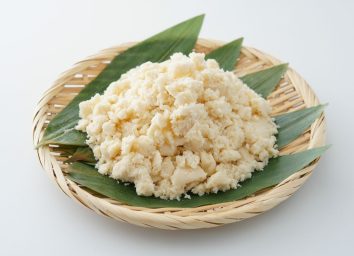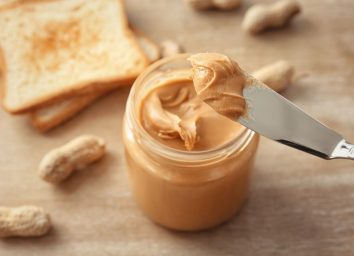Surprising Side Effects of Eating Too Much Protein, Say Dietitians
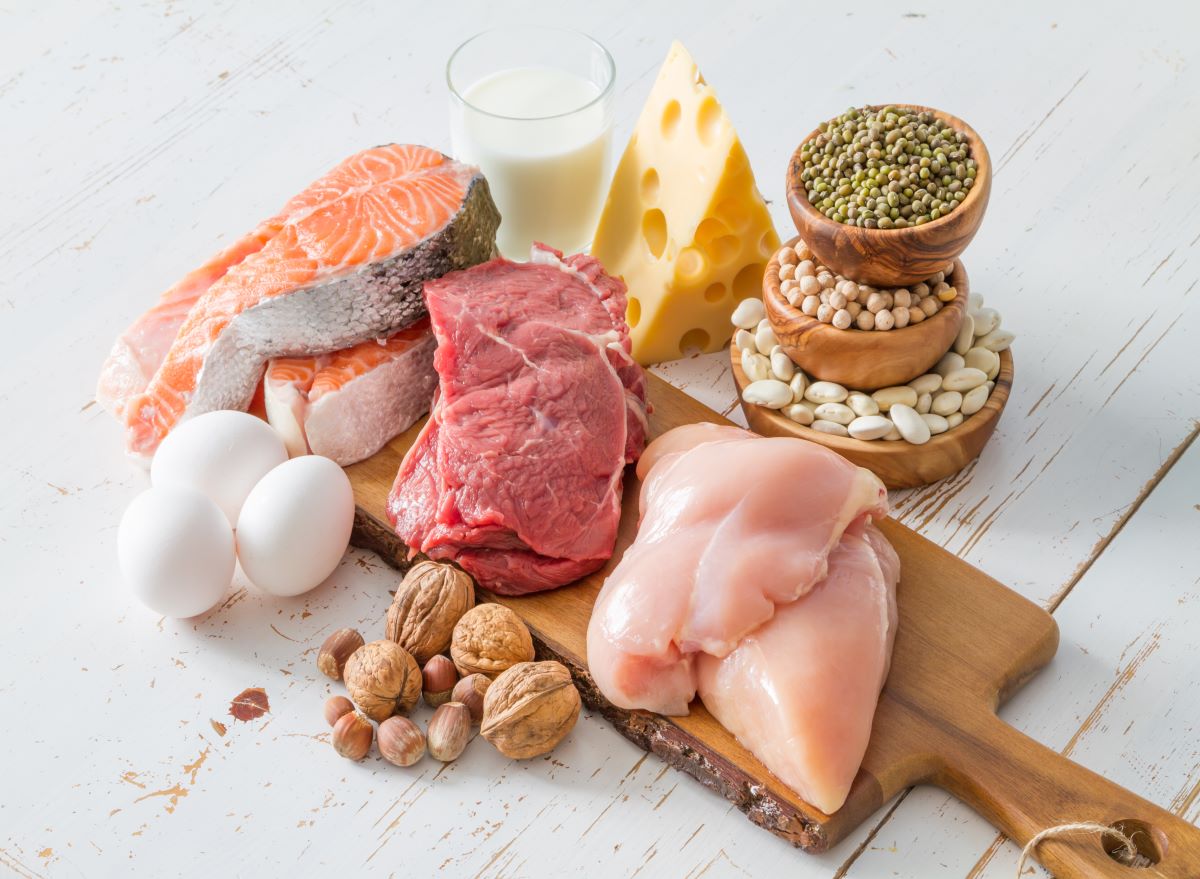
Incorporating enough protein into your diet can aid you towards leaner muscles, curbing your hunger, speeding recovery after exercise, and more benefits. However, although it is important to maintain a healthy diet of protein, did you know that too much protein may come with some positive and negative effects?
According to the Mayo Clinic, most research suggests that those who are very active should eat about 1.2 to 2 grams of protein per kilogram of body weight. Lean meats, poultry, and seafood are popular examples of foods that contain a good source of protein. However, other non-meat options include eggs, legumes and beans, nuts, and even certain dairy products like cheese.
But how much would be considered too much? We spoke with members of our medical expert board, The Nutrition Twins, Lyssie Lakatos, RDN, CDN, CFT, and Tammy Lakatos Shames, RDN, CDN, CFT, about the surprising side effects of eating protein. See what they have to say on the matter. Then, for more on protein, read on about The One Major Side Effect of Using Protein Powder, Says Dietitian.
You look and feel bloated.

Bloating is a very uncomfortable feeling in the stomach portion of your body, where it makes you want to unbutton your pants and just not move for a while. Bloating can happen for various reasons such as eating too fast, eating gas-inducing foods, or even drinking through a straw. What you may not have known is that your diet, including too much protein, can also play a factor.
“Often when people go on a high-protein diet, they think they’ll feel less bloated, but they don’t include enough fiber rich foods like fruits and vegetables or whole grains and beans (carbs) and they become constipated because of the lack of fiber,” say The Nutrition Twins. “The constipation leads to stomach discomfort and bloating, and often people’s pants feel tight.”
You may not be as hungry.

Protein is great for weight loss, keeping you fuller for longer. As you cut carbs and fat and eat more protein, your hunger hormone, gherlin (your hunger hormone) is reduced, while you’ll increase satisfaction hormones.
According to the Nutrition Twins, this can be very helpful for weight loss, as hunger is what frequently leads to poor, calorie-dense food choices and overeating.
You may get more belly fat.
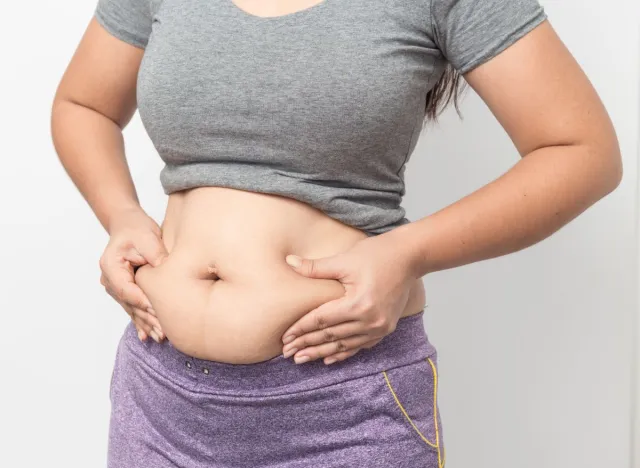
Eating too much is one of the major causes of gaining abdominal fat. Protein is not an exception and can cause more weight gain if you eat too much of it.
“For most people, more protein doesn’t mean bigger muscles, it can mean more body fat, including around the midsection,” say The Nutrition Twins. “Unless you’re weight training and challenging your muscles very consistently and truly need that extra protein for muscle growth, extra protein won’t help to increase your muscles.”
Your breath could smell bad.
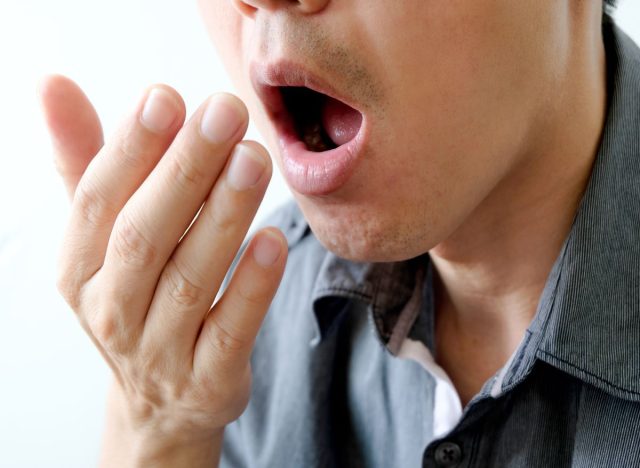
There are foods that are going to give you bad breath no matter how little of it you eat. However, in this scenario, you can control it.
According to the Nutrition Twins, if you cut carbohydrates out completely or only include tiny amounts of them in your diet, you could go into the process called ketosis because your body is forced to make fuel from alternative sources.
If this happens, the result is a strange nail-polish-like smell coming off your breath.
Your brain not be as sharp as usual.

A balance of carbohydrates in your diet is needed if you want to function properly. If you’re not giving your body sufficient carbohydrates, that connects to your brain not having enough fuel, resulting in the inability to focus and may cause brain fog.
Luckily, this can be reversed quickly when you give your body and brain more carbohydrates for fuel. The Nutrition Twins suggest even simply eating a piece of fruit will help most of the time.
You could end up with heavy metals in your bloodstream.
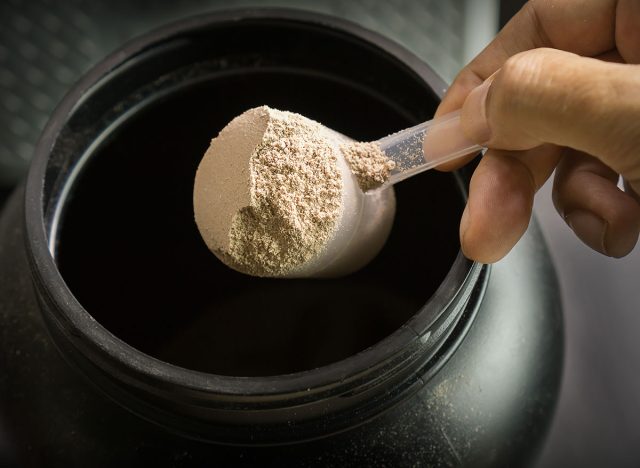
A major part of a high-protein diet usually includes relying on a daily serving or two (or more) of protein powder.
Many protein powders contain heavy metals like arsenic, lead, arsenic, cadmium, and mercury which are linked to several health problems such as brain damage and organ damage. The Nutrition Twins suggest checking out the Clean Label Project to see if your protein powder has been checked for contaminants.
You may damage your kidneys.
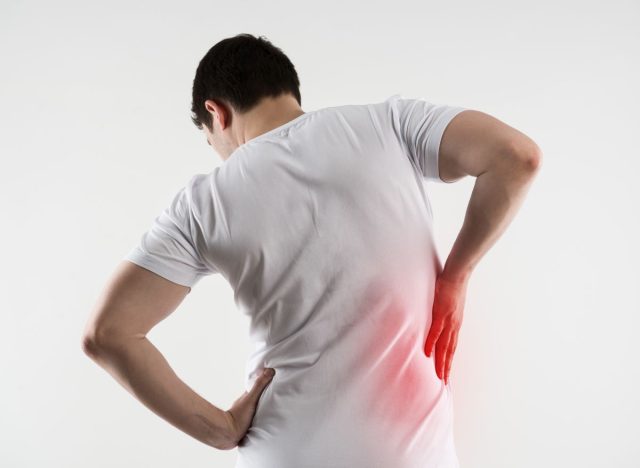
Your kidneys are a vital part of the body. They remove wastes and extra fluid from your body as well as remove acid that is produced by the cells of your body and maintain a healthy balance of water, salts, and minerals in your blood—such as sodium, calcium, phosphorus, and potassium.
“Your kidneys process nitrogen from protein’s amino acids, and they’ll be kicked into overdrive with the extra workload, possibly putting you at risk for kidney stones and kidney damage,” say the Nutrition Twins.
Here’s The #1 Best Diet To Protect Your Kidneys, New Study Says.
You may get sick more often.

If you’re getting too much protein, you’re likely not eating other foods such as fruits, vegetables and whole grains, which contain powerful antioxidants and anti-inflammatory compounds that help to protect your immune system and fight disease.
In a review done by Critical Care Medicine Journal, protein calorie malnutrition could lead to an impaired host immunity with particularly harmful effects on the T-cell system, which is part of the immune system and develops from stem cells in the bone marrow, resulting in an increased chance of infection and increased morbidity and mortality in hospitalized patients.
You may drop a few pounds quickly.
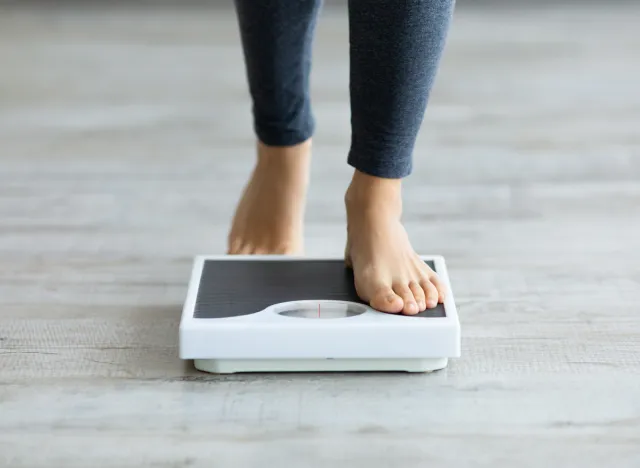
High fat and protein diet is what a lot of people on the keto diet experience. A high protein diet may cut carbs significantly and you’ll lose some water weight right away. This is because carbohydrates store water in the muscle for energy as glycogen, so when carbs are cut out, the stored glycogen and water is released.
“This can be encouraging for people who are trying to lose weight and need a jumpstart,” say the Nutrition Twins. “Just keep in mind that if you don’t cut calories, the weight isn’t body fat weight, and will come back as soon as you start adding carbs back in.”
